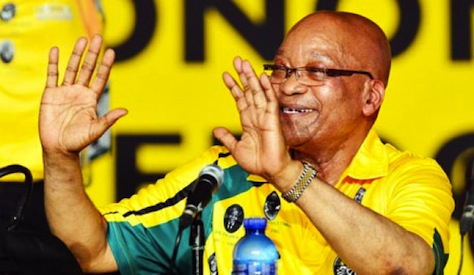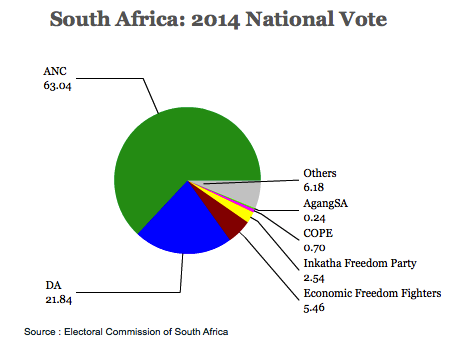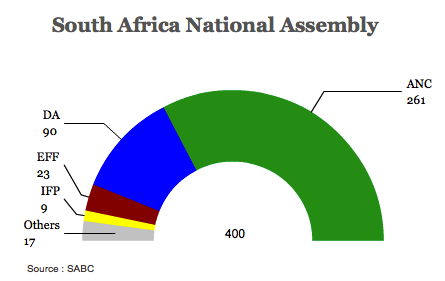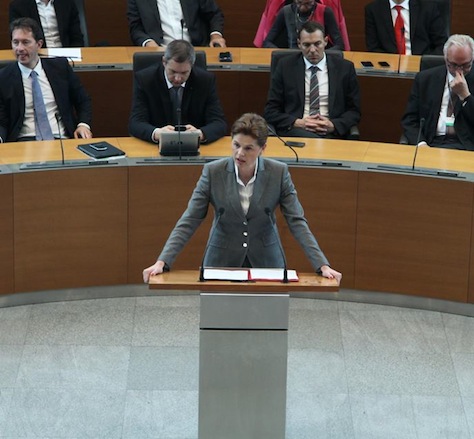There wasn’t any doubt that the ruling African National Congress (ANC) would win the fifth post-apartheid election in South Africa’s history.![]()
But relatively poor showings by South Africa’s various opposition parties seem to have failed to hold the ANC under 60% of the national vote, with the party set to enter its third decade in power. Under the leadership of Nelson Mandela in 1994, the ANC rose to prominence after a decades-long struggle against white minority rule, and its political dominance hasn’t seriously been challenged at the national level in the past 20 years. That’s despite growing malaise over economic conditions, income inequality and mass unemployment. That’s also in addition to growing concerns about corruption under the leadership of president Jacob Zuma (pictured above), who will now be reelected to a second term once South Africa’s newly elected National Assembly convenes later this month.
Notably, the election was the first to include the votes of the ‘born-free’ generation, South Africans who were born after the end of the apartheid era. It was also the first election held after Mandela’s death last December at age 95.
* * * * *
RELATED: South Africa votes in 5th post-apartheid election: what you need to know
* * * * *
Voters in South Africa yesterday elected all 400 members of the National Assembly and the governments of all nine provinces.
With just over 85.5% of the votes counted, the ANC led with 63.04% of the vote. The opposition Democratic Alliance (DA) was winning 21.84%, its highest vote total to date. In third place was the newly formed Economic Freedom Fighters (EFF) with 5.46%. Its leader, Julius Malema a former ANC Youth League head and a one-time Zuma enthusiast, was kicked out of the ANC two years ago, and he’s campaigned on a neo-Marxist platform of widespread land redistribution to black South Africans and nationalization of key South African industries, including mining.
* * * * *
RELATED: Who is Julius Malema?
* * * * *
Here’s the national breakdown — and the anticipated seat count, on the basis of the current results:
So for all the hand-wringing over the corruption, a deadly confrontation with striking mineworkers, the tension within the ‘tripartite’ alliance among the ANC, the South African Communist Party and the Congress of South African Trade Unions (COSATU), the ANC will hold almost exactly the same number of seats in the National Assembly that it held prior to the elections.
What does this mean for South African policy? Continue reading South Africa: early election results point to ANC landslide



